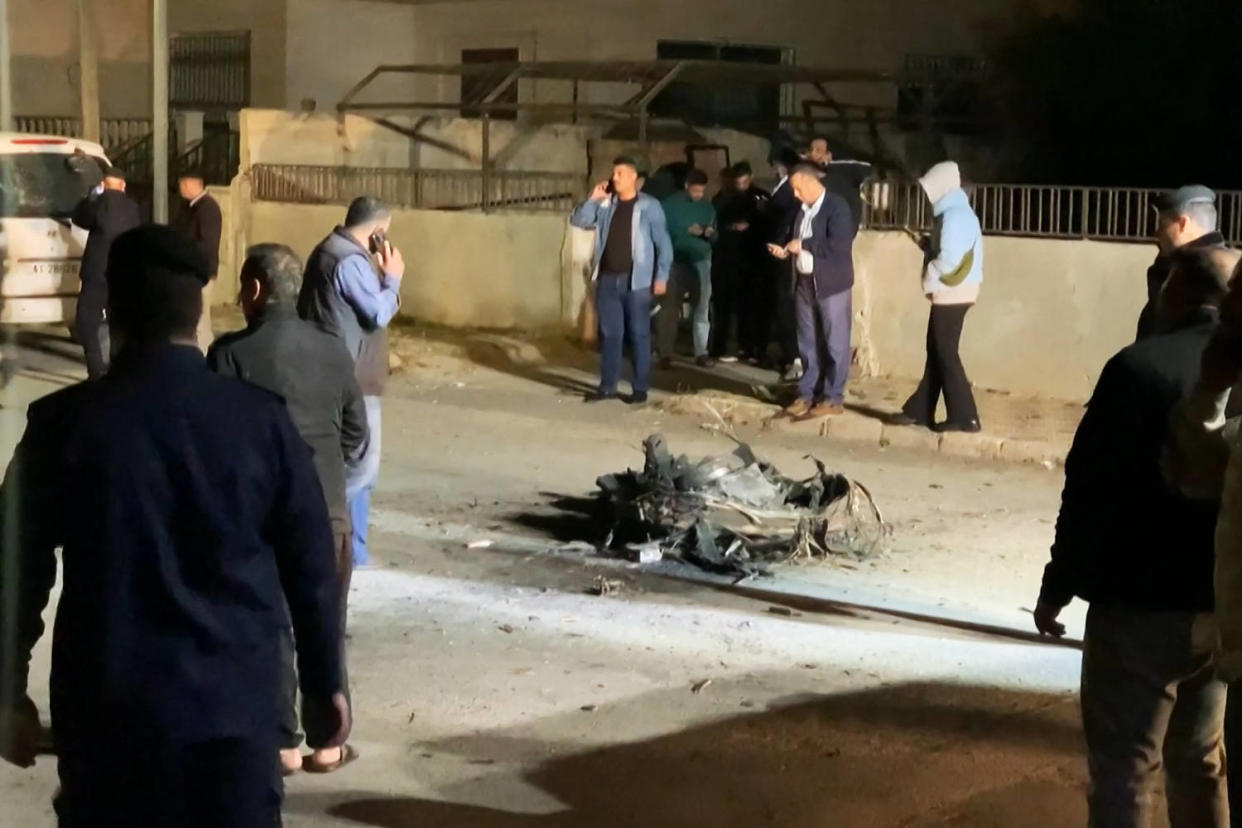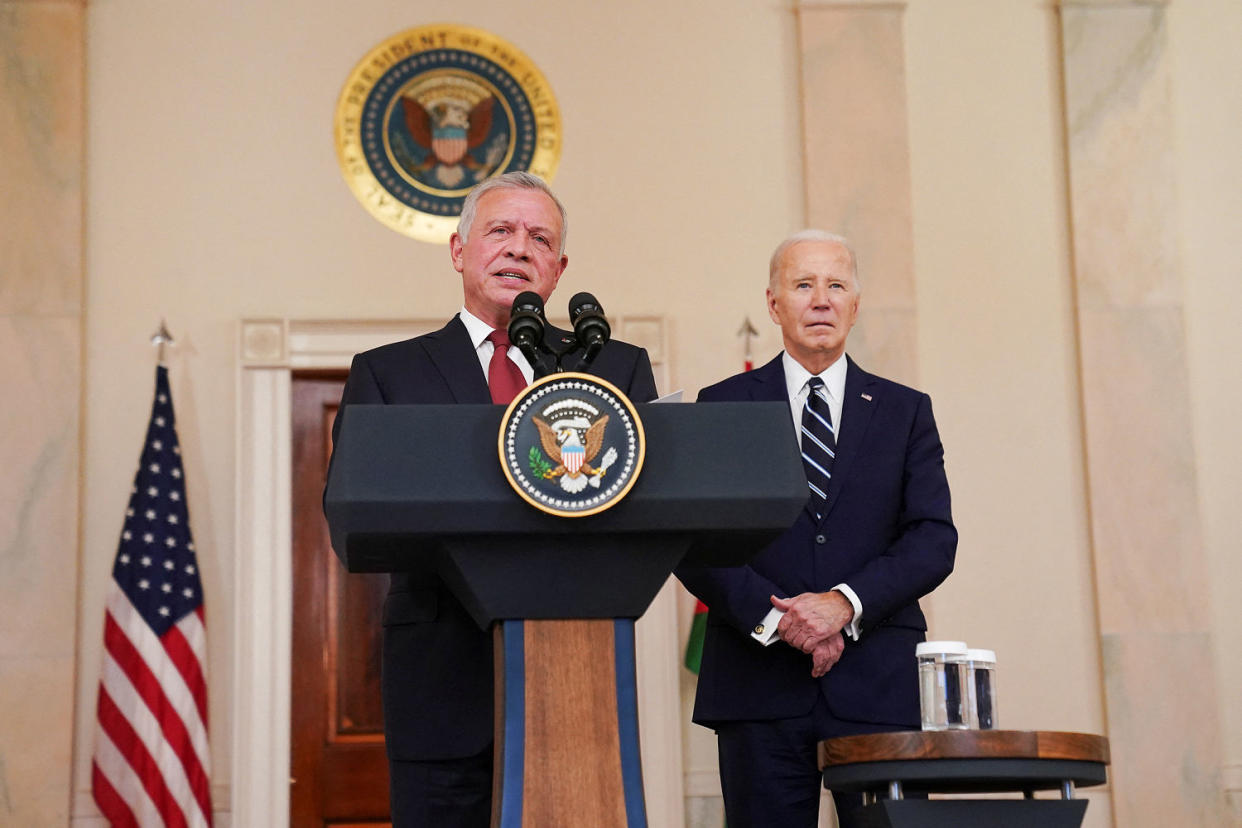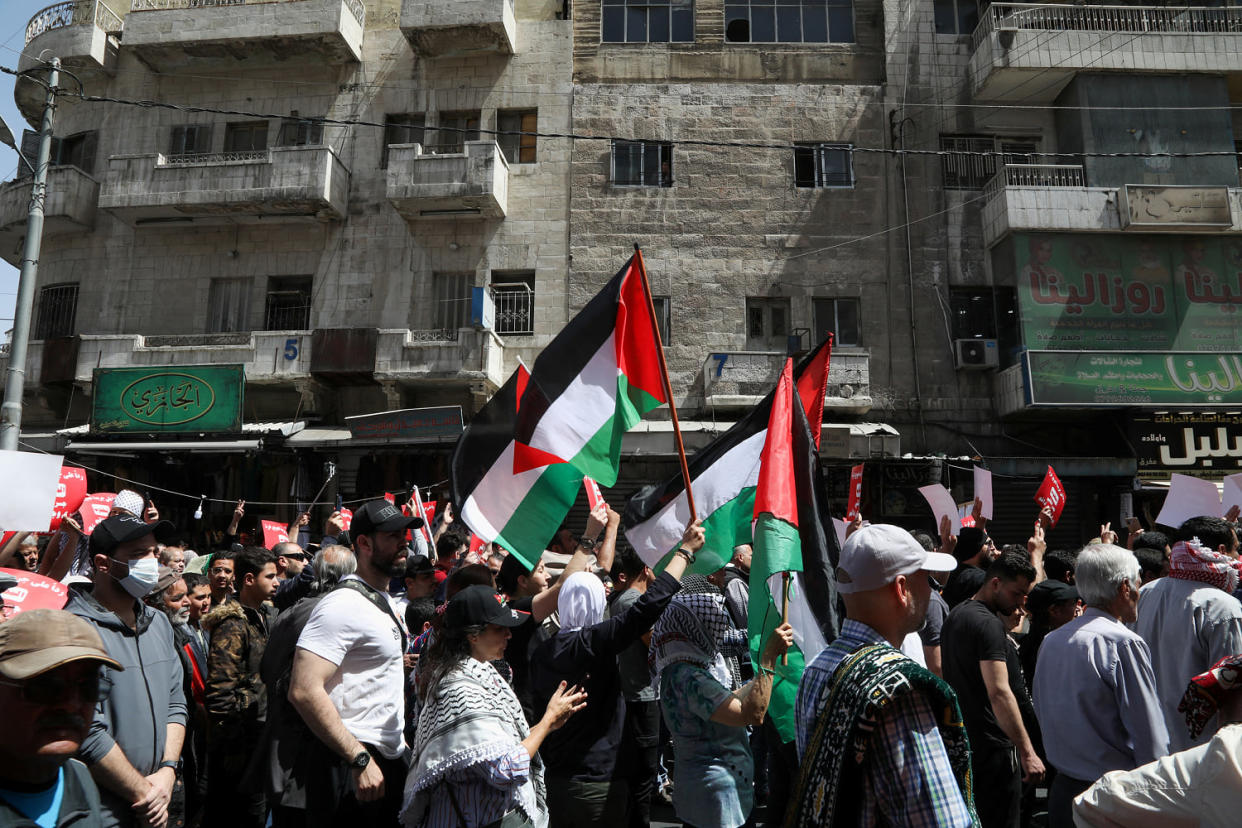An uneasy alliance of Arab states helped defend Israel from Iran. Their resolve may soon be tested.
BEIRUT — Since Iran’s unprecedented retaliatory attack against Israel was thwarted over the weekend with the help of the U.S. and its Middle Eastern allies, the Biden administration has crowed that the “coalition” averted a regional war.
An Israeli response, however, would test the durability of an informal coalition of awkward bedfellows, including Saudi Arabia, Jordan and the United Arab Emirates, whose recent cooperation against Iran has the potential to be damaging on the home front, analysts say.
“Those Arab countries are in a very critical situation,” said Oraib Al Rantawi, director of the Al Quds Center for Political Studies, a think tank based in Jordan’s capital, Amman. “There is no easy position to take for all of them, especially Jordan, which for geopolitical reasons has found itself trapped between two troublemakers — Iran and Israel.”
After Iran’s barrage of more than 300 missiles and drones did limited damage, as many of them were shot down by American, British, Israeli and Jordanian forces, National Security Council spokesperson John Kirby said Monday on MSNBC’s “Morning Joe” that the coordinated operation was “an extraordinary military success” that sent “a strong message about where Israel is in the region versus where Iran is in the region, which is increasingly isolated.”

But there was no such boasting from America’s partners in the Middle East, where even acknowledgment of the weekend’s events was muted.
One sighting of their difficult domestic messaging came Monday, when Jordan’s foreign minister, Ayman Safadi, told state television that the country would defend itself against any threat to its sovereignty and airspace, including from Israel.
The comments, echoed in foreign media interviews, were among the few public statements Jordanian officials have made about the country’s role.
Iran said the salvo was retaliation for an attack on the Iranian consular building in the Syrian capital, Damascus, which killed two senior commanders and five advisers from Iran’s Islamic Revolutionary Guard Corps. Israel has not claimed responsibility for the attack, for which it is widely believed to be responsible.
Israel may test Jordan’s commitment in a matter of hours depending on whether and how it decides to respond.
Among the three Arab states that participated in Israel’s defense, Jordan is the only one that shares a border with Israel and the only one that took part in the air operation to destroy the drones.
In a measure of the Middle East’s new realignment, Saudi Arabia and the United Arab Emirates shared intelligence about Iranian plans with the U.S. after they were briefed on them to safeguard their airspace, as first reported on Monday by The Wall Street Journal.

While the UAE normalized its diplomatic relations with Israel four years ago, Saudi Arabia was on the verge of doing so before the negotiations were derailed by Hamas’ Oct. 7 attacks, which Israeli officials say killed 1,200 people.
Both of the monied Gulf monarchies are “heavily reliant on Western states,” said Tahani Mustafa, a senior analyst at the International Crisis Group, a Belgium-based think tank. Saudi Arabia “wants a U.S. security pact,” he said. “Until that alliance is kind of fixed, Saudi will try to do all it can to remain in the U.S.’ good books.”
Jordan’s participation signaled a kind of volte-face for a state that has been unsparing in its criticism of Israel’s six-month military campaign in the Gaza Strip. It was the first country to withdraw its ambassador from Israel, it has repeatedly called for a cease-fire, and it has taken the lead on delivering aid into the besieged enclave.
Rather than signal a newfound affection for its neighbor, Jordan’s participation in the operation shows its wholesale reliance on American and Israeli diplomatic and economic support, said Rantawi of the Al Quds Center for Political Studies.

Even though Palestinian refugees are about half of the population, Jordan became the second Arab country to recognize Israel in 1994. Its reliance on the wider West goes even deeper: Jordan’s landscape is dotted with American, French and British military bases, and its economy is largely propped up by humanitarian and military aid.
Jordan’s government also signed a 2021 defense agreement that essentially gives the American military free use of its land and airspace.
“I don’t think they’ll have much choice than to go wherever the tide takes them,” said Mustafa of the International Crisis Group. “It’s ultimately not up to them.”
Jordan is also eager to parry calls from right-wing Israeli lawmakers to take in more Palestinian refugees — part of a long-standing push to effectively turn Jordan into a de facto Palestinian state, she said.
But Jordan’s participation in the American “coalition” could still stand in the way of the government’s desire to close the yawning gap between public policy and public opinion, Rantawi said, citing Jordanians’ relentless criticism of Israel’s war in Gaza.
So far, the messaging has appeared to work in all three countries. Tensions between the largely Sunni Muslim Saudi Arabia, Jordan and the UAE on one side and Iran, which is majority Shia, on the other have dominated the Middle East for decades.
“There has been a narrative going on for years that Iran is trying to destabilize Jordan,” said Ghaith al-Omari, a senior fellow at the Washington Institute for Near East Policy and a former official in the Palestinian Authority.
The ball is now very much in Israel’s court. Were Israel to launch a tit-for-tat strike on Iran, it would risk further alienating public opinion among its hard-won Middle East partners, Omari said.
“Things can become very messy if the Israelis try to retaliate over Jordanian airspace,” he said.
